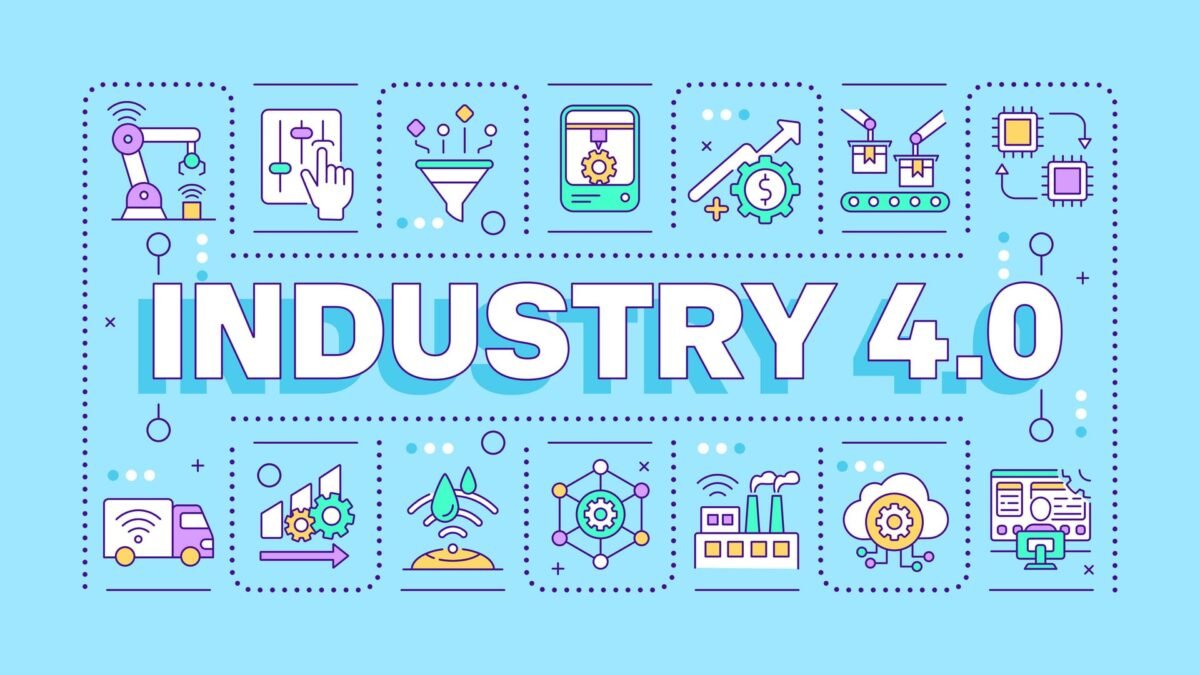Industry 4.0 and Overseas Recruitment in Gulf Countries
The world is undergoing a transformational shift, often referred to as the Industry 4.0. This new era, driven by cutting-edge technologies like artificial intelligence (AI), the Internet of Things (IoT), big data, and robotics, is not only reshaping industries but also redefining global labor markets. In the Gulf Cooperation Council (GCC) countries, which include Saudi Arabia, and the United Arab Emirates (UAE),Bahrain, Qatar, Kuwait and Oman the convergence of Industry 4.0 and overseas recruitment is creating unique opportunities and challenges.
Understanding Industry 4.0
Industry 4.0 represents the integration of digital and physical systems within industrial processes. Unlike previous industrial revolutions that were driven by mechanization, electrification, or computerization, Industry 4.0 emphasizes connectivity and automation through advanced technologies. Key pillars of this revolution include:
Artificial Intelligence and Machine Learning: Enhancing decision-making processes and automating complex tasks.
Internet of Things (IoT): Enabling devices to communicate and share data seamlessly.
Big Data and Analytics: Offering insights for improved efficiency and decision-making.
Robotics: Increasing precision and productivity in manufacturing and services.
Blockchain: Securing transactions and data-sharing mechanisms.
The Significance of Industry 4.0 and Overseas Recruitment
Gulf nations are among the fastest-growing economies globally, with a strong focus on diversifying away from oil dependency. Visionary plans like Saudi Arabia’s Vision 2030 and the UAE’s Fourth Industrial transformation Strategy aim to integrate advanced technologies to build knowledge-based economies. Key sectors targeted for transformation include energy, healthcare, logistics, and manufacturing.
The Gulf’s strategic location as a global trade hub, coupled with its significant investments in infrastructure and innovation, positions it as a leader in adopting Industry 4.0. However, implementing these advanced systems requires skilled labor, often sourced from abroad.
Overseas Recruitment in Gulf Countries
Gulf countries have long been reliant on overseas labor, primarily due to their relatively small native populations and the need for workers across various industries. Expatriates constitute a significant percentage of the workforce in these nations. In the UAE, for instance, over 80% of the population comprises expatriates, while in Qatar, this figure exceeds 85%.
Industries like construction, healthcare, hospitality, and IT are heavily dependent on foreign expertise. With the rise of Industry 4.0, there is an increasing demand for professionals skilled in areas such as AI, data analytics, cybersecurity, and IoT.
The Intersection of Industry 4.0
The integration of Industry 4.0 in the Gulf is altering the dynamics of overseas recruitment in several ways:
Shift in Skill Requirements
As traditional jobs are being automated, the demand for highly skilled professionals has surged. Recruitment agencies are now focusing on sourcing talent proficient in:
- Programming and software development
- Data science and analytics
- Robotics and automation engineering
- Cybersecurity
- Blockchain technology
Digital Recruitment Platforms
The adoption of AI-powered recruitment platforms is streamlining the hiring process. These platforms utilize machine learning algorithms to match candidates with job requirements, analyze resumes, and predict job performance. The Gulf region is increasingly relying on these technologies to expedite recruitment, particularly for specialized roles.
Remote Work and Global Talent Pool
Industry 4.0 has facilitated remote working capabilities, enabling Gulf countries to tap into a global talent pool without requiring physical relocation. This is particularly advantageous for projects requiring short-term expertise or consultancy.
Upskilling and Reskilling Initiatives
To meet the growing demand for advanced skills, Gulf nations are investing in upskilling and reskilling programs for both local and expatriate workers. Partnerships with international institutions and online learning platforms are becoming commonplace, allowing workers to stay competitive in the evolving job market.
Challenges in Adapting
Despite the promising opportunities, several challenges accompany the integration of Industry 4.0 and overseas recruitment in the Gulf:
- Skill Gaps
A significant portion of the workforce lacks the necessary skills to operate in Industry 4.0 environments. Bridging this gap requires substantial investment in education and training.
- Cultural and Regulatory Barriers
Adapting to new work cultures and navigating complex visa and labor regulations can be challenging for overseas recruits.
- Technological Infrastructure
While Gulf nations are investing heavily in infrastructure, some areas still lack the technological readiness required for seamless Industry 4.0 integration.
- Job Displacement
Automation and AI may lead to job displacement, particularly in industries reliant on low-skilled labor. Balancing automation with employment needs is a critical concern.
Conclusion
The confluence of Industry 4.0 and overseas recruitment is set to transform the Gulf region’s economy and labor market. While challenges like skill gaps and regulatory complexities exist, the proactive strategies being implemented by Gulf nations showcase their commitment to becoming global leaders in the Fourth Industrial Revolution. By fostering innovation, investing in human capital, and embracing diversity, the Gulf countries can not only meet their ambitious economic goals but also set a benchmark for the rest of the world.
Get in touch with
Premier Recruitment Agency
of Pakistan
Disclaimer :
The information provided in blog articles and how-to guides on the LinkArabia website is for general informational purposes only. While we strive to provide accurate and up-to-date content, we make no representations or warranties of any kind, express or implied, about the completeness, accuracy, reliability, suitability, or availability of the information. Any reliance you place on such information is strictly at your own risk. For more information , please read linkarabia disclaimer policy.




